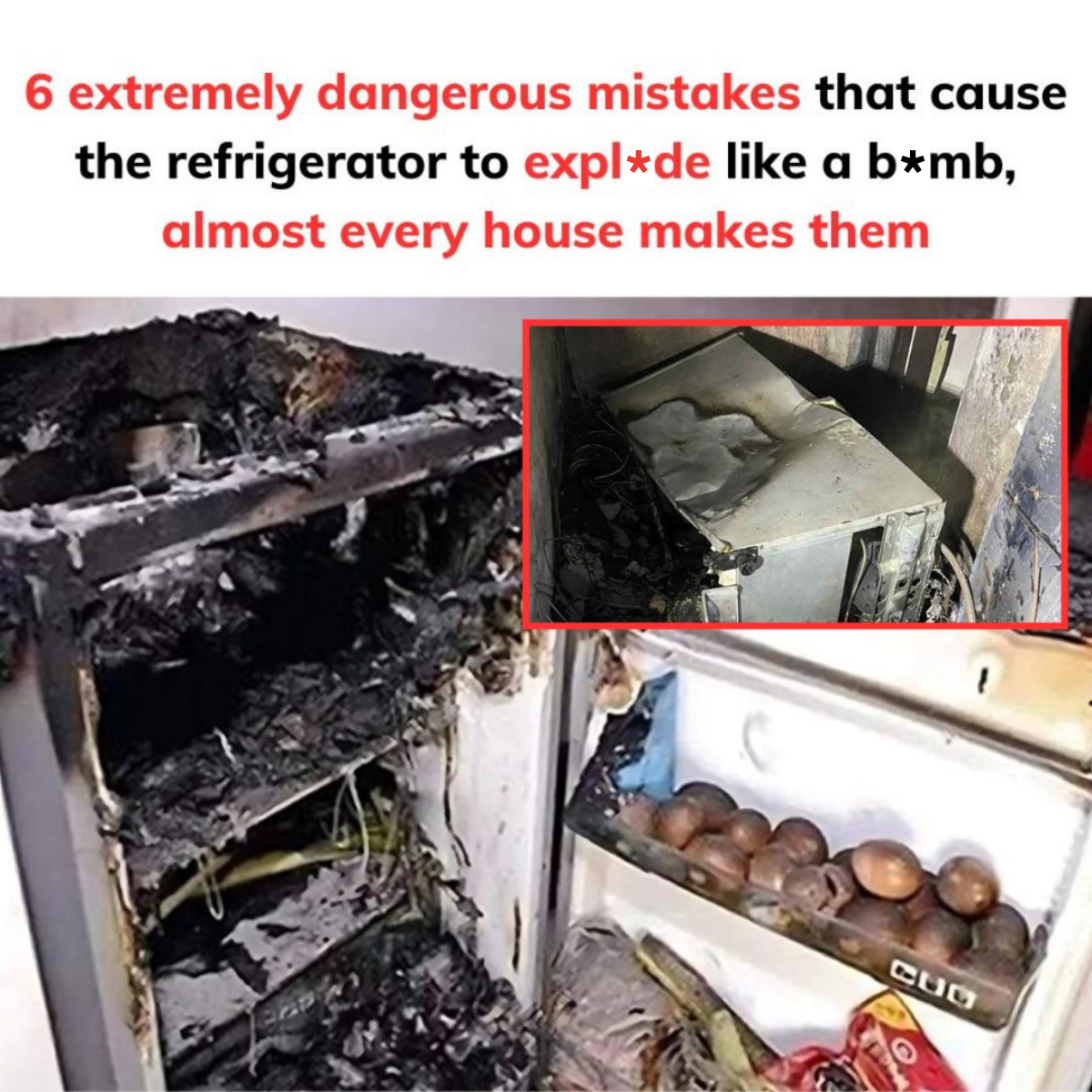1. Placing the refrigerator next to heat-generating devices
Refrigerators can explode if placed too close to heat-producing appliances like gas stoves, microwaves, or ovens. Excessive heat or a short circuit in these devices can lead to the refrigerator exploding. Additionally, electrical wires near flammable materials such as curtains, blankets, or mattresses increase the risk. A short circuit can ignite these materials and cause the refrigerator to catch fire.
2. Using an old or poorly maintained refrigerator
Old refrigerators, or those frequently repaired, can pose a risk. Issues like clogged capillary tubes between the condenser and evaporator can cause high pressure, reducing cooling efficiency and increasing the explosion risk. Warning signs include the compressor running nonstop, loud noises, excessive ice buildup, and inadequate cooling. Regular maintenance by a technician is advised, or consider replacing the unit if necessary.

3. Placing carbonated drinks or alcohol in the freezer
A common mistake that can cause refrigerators to explode is placing carbonated drinks in the freezer. Temperature fluctuations can turn these cans into explosive “bombs.” Similarly, freezing beer or alcohol alters the pressure, risking an explosion. Glass water bottles in the freezer can also burst due to water expansion and glass contraction when frozen.
4. Gas leak combined with electrical issues
Refrigerators have robust steel gas tanks, making spontaneous combustion unlikely unless there’s a gas leak, such as from an open weld or leaking pipe, combined with an electrical spark from a short circuit. High electricity demand in homes can lead to overloaded circuits and short circuits. If a gas tank explosion coincides with someone being home, the resulting fire, smoke, and gas fumes can have severe consequences.

5. Overloading outlets with multiple devices
Refrigerators are high electricity consumers. Plugging multiple devices into the same outlet can easily cause an electrical short circuit, leading to a fire in the refrigerator.
6. Using insect repellent near the refrigerator
Avoid using chemicals like insect repellents or hairsprays near the refrigerator. These substances can react with sparks and lead to explosions, posing a significant danger.


